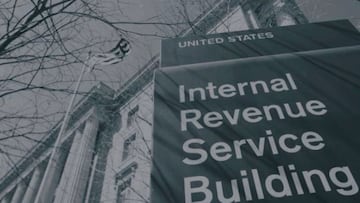Third stimulus check: is there a limit of batches the IRS will send?
The American Rescue Plan which authorized the latest round of stimulus checks for up to $1,400 per American also gave the IRS a timetable to deliver them.

Most Americans that were eligible to receive a third Economic Impact Payment, or stimulus check, have received at least a partial payment if not the whole amount they qualified for. However, the Internal Revenue Service (IRS) is still sending out more payments weekly.
As the IRS processes 2020 tax returns the agency is sending out “plus-up” payments. These supplemental payments on the Economic Impact Payments are going to taxpayers who qualified for additional stimulus money based on the income they reported in 2020 topping up amounts already sent out. Additionally, Americans who the agency didn’t previously have information on to send a stimulus check are now beginning to see their first stimulus check.
Also see:
- IRS unveils new online tool for 2021 Child Tax Credit
- Progressive organizations call for an additional stimulus check
- White House more focused on passing Biden's agenda than sending another round of stimulus checks
- $10 billion relief fund for homeowners
The IRS will continue to disburse payments, either new or supplemental, on a weekly basis through the end of the year. Still there are millions of Americans who the IRS does not have information for in order to send them an Economic Impact Payment which they have coming to them, if they choose to collect. These people in underserved communities can now take advantage of a tool first set up last year to claim the original $1,200 stimulus check. It was shut down last fall but has been brought back to life for a dual purpose.
IRS reopens online portal for Non-Filers tool
The IRS announced on Monday that it has relaunched its Non-Filer tool in the run-up to the new advanced payments on the 2021 Child Tax Credit. The tool is primarily for those who the IRS doesn’t have information on, to get signed up for the monthly payments that are set to begin 15 July but it will also let those who are not required to report their income to claim missing stimulus check funds they never claimed.
People without permanent addresses may have difficulty getting a stimulus payment automatically. Filing a 2020 #IRS tax return, even if they don’t have to, could put money in their pockets. Learn more at https://t.co/CJRN8wJxUj pic.twitter.com/tPgFzuLguq
— IRSnews (@IRSnews) June 14, 2021
The updated Non-Filer tool is only for people who never filed a 2019 or 2020 tax return and those who did not use the previous version last year to register for the Economic Impact Payments, better known as stimulus checks. The portal will allow those people to provide the necessary information to the IRS about themselves, their children 17 and under and/or other dependents.
The tool will help underserved groups, including the homeless, to receive the tax benefits created under the American Rescue Plan. The agency asks that all groups and individuals with connections to people with children to share this vital information, even if they do not have a permanent address. The tool is only available at the official IRS.gov website, any other option is a scam.
The Non-Filers tool allows the IRS to get people the money they qualify for
Related stories
The IRS created the tool in conjunction with Intuit as part of the Free File Alliance is designed for people who don’t have enough income to be required to file an income tax return. Through the tool individuals and families who have little or no income will be able to provide the IRS with the basic data necessary such as name, address, and Social Security numbers the agency needs in order to send tax benefits from the American Rescue Plan and previous covid-19 relief bills. Only those who are not required to file a 2020 tax return and have not done so can use the tool.
#IRS has an online tool to help families who don’t file tax returns register for monthly #ChildTaxCredit payments. Learn more at https://t.co/QsIMs56FuT pic.twitter.com/5igl8nIFiF
— IRSnews (@IRSnews) June 14, 2021
Once the IRS has the necessary information, the agency will be able to calculate and issue advance payments on the 2021 Child Tax Credit to those with eligible children and/or dependents who use the system. Individuals and families will also be able to claim their third Economic Impact Payment which provided up to $1,400 for each American that qualified. The portal in addition will let users file for the 2020 Recovery Rebate Credit, the tax credit on 2020 tax returns that allowed taxpayers to recover any stimulus funds in the first or second stimulus check payments that they missed out on due to ineligibility based on their 2019 or 2018 tax return which the IRS used to determine how much an individual or family would receive.
- IRS
- Coronavirus stimulus checks
- USA coronavirus stimulus checks
- Child benefits
- Covid-19 economic crisis
- Science
- Social support
- Coronavirus Covid-19
- Economic crisis
- United States
- Inland Revenue
- Taxes
- Pandemic
- Coronavirus
- Recession
- Tributes
- Economic climate
- Virology
- Outbreak
- Infectious diseases
- North America
- Public finances
- Social policy
- Diseases
- Microbiology
- Economy
- Finances
- Society
- Politics
- Biology
- Health
- Life sciences
- America


